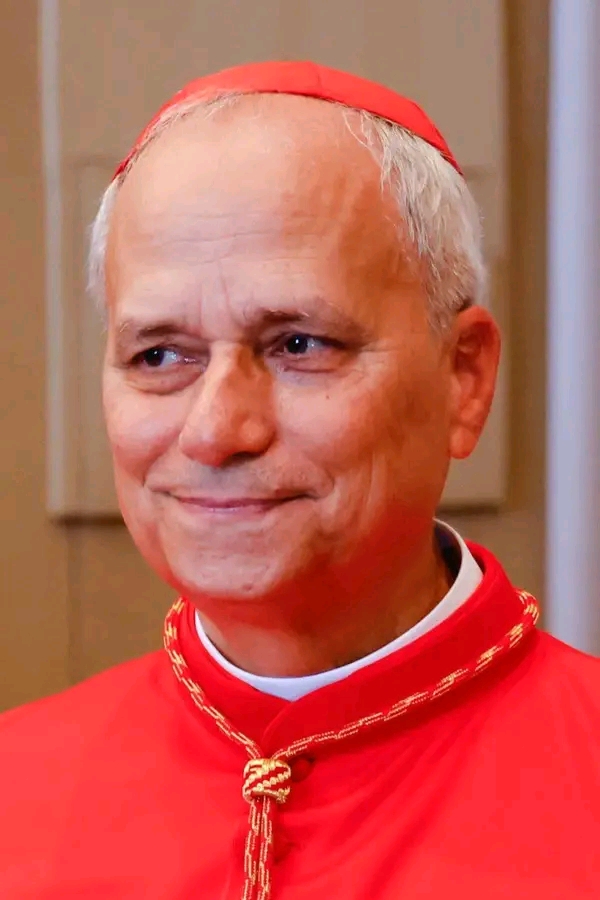The election of Robert Francis Cardinal Prevost, OSA, as Pope Leo XIV -the first American pontiff in Catholic history has sent shockwaves through the Church and the world.
But as the faithful process this groundbreaking moment, a controversial question lingers: Did the United States, directly or indirectly, influence the conclave?
The speculation gained traction when former U.S. President Donald Trump posted an AI-generated image of himself dressed as the pope on his social media platform just days before the conclave.
While the post was likely satire, it fueled debates about American soft power, Vatican politics, and whether secular leaders could sway the election of a pope.
This article examines: The historic election of Pope Leo XIV2.
The role of U.S. influence in the Vatican
3. The Trump AI pope image and its unintended consequences.
4. What this means for the future of the Church.
1. The Unprecedented Election of an American Pope
Cardinal Prevost’s election breaks a 2,000-year tradition of European dominance in the papacy.
A Chicago-born Augustinian with deep missionary experience in Peru, his selection signals a shift in Vatican priorities, possibly toward the Global South and the Americas.
Why Him?
– Bridge-Builder: He balanced progressive and conservative factions.
– Administrative Experience: As Prefect of the Dicastery for Bishops, he oversaw bishop appointments worldwide.
– Global Perspective: His work in Latin America gave him credibility beyond the U.S. Yet, his nationality raises eyebrows.
Has the U.S., consciously or not, exerted influence over the Church’s most sacred decision?
2. The U.S. and the Vatican: A Complicated Relationship
The Vatican is a sovereign entity, and the conclave is designed to be free from political interference.
However, the soft power of the United States, through media, finance, and cultural influence cannot be ignored.
Ways the U.S. Could Indirectly Shape a Papal Election:
– Media Narratives: American Catholic media (EWTN, America Magazine) shape global perceptions of candidates.
– Financial Influence: U.S. donors fund Vatican projects, raising questions about leverage.
– Diplomatic Pressure: While no direct evidence exists, geopolitics always plays a role behind closed doors.
Did American cardinals lobby harder for Prevost?
The U.S. has 11 voting cardinals, a small but notable bloc.
While no explicit coordination occurred, their collective voice may have carried weight.
3. The Trump AI Pope Meme: A Coincidence or Psychological Warfare?
Days before the conclave, Donald Trump posted an AI-generated image of himself as pope with the caption:
“Even the Vatican knows who really runs things.”
Possible Interpretations:
– A Joke: Trump has a history of trolling, and this was likely satire.
– A Power Play: The image, even in jest, reinforced the idea of American dominance over the Church.
– Unintended Influence:
Could the meme have subconsciously swayed perceptions of an American pope?
While the post itself didn’t impact the conclave, it highlighted the blurred lines between U.S. politics and Catholic leadership.
4. What This Means for the Future of the Church
Pope Leo XIV’s election could lead to:
✅ Stronger U.S.-Vatican ties, potentially influencing policies on poverty, climate, and migration.
Suspicion from traditionalists ; some may see an American pope as “too modern” or politically influenced.
🌎 A rebalancing of Church focus more attention on the Americas, possibly at Europe’s expense.
Will the Next Pope Be AI-Influenced?
Trump’s AI post was a joke—but it raises a real question:
Could artificial intelligence, social media, or digital propaganda sway future conclaves?
As technology infiltrates every aspect of life, even the sacred process of electing a pope may face new vulnerabilities.
A New Era, With New Questions
In conclusion
the election of Pope Leo XIV is a historic milestone, but it comes with unprecedented scrutiny.
While there’s no evidence of direct U.S. interference, the rise of an American pope amid American cultural dominance inevitably raises questions.
As for Trump’s AI pope meme?
Probably just trolling. But in an age where algorithms shape reality, the line between satire and influence grows thinner every day.
Do you think the U.S. had a role in this election? Or was it pure coincidence?
Share your thoughts below.
